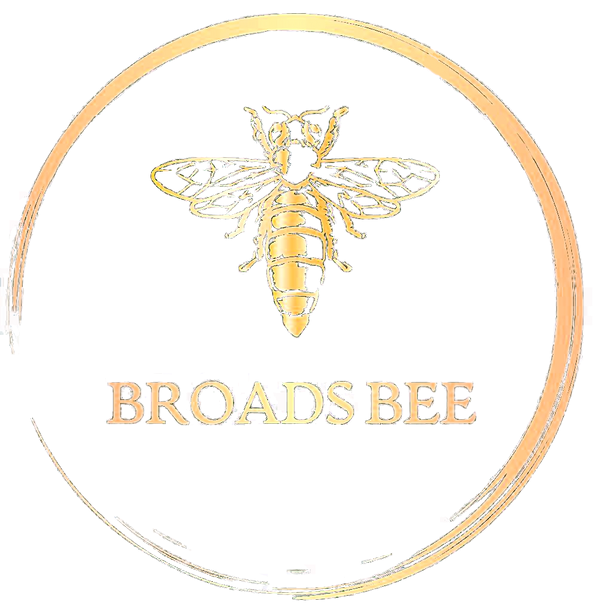Our Journey
John had always wanted to try beekeeping. He’d read books, and researched beginner courses, but never actually got around to trying it. Clare was MUCH less enthusiastic about the idea. Particularly as we had a young daughter and foster children in the house too.
Eventually Clare agreed to a single colony, and John ordered his first nucleus colony, and the other equipment that he’d need. The kids loved the look of the bee suit as it made John look like a spaceman!! Then came the long wait for spring and the arrival of the colony!

Finally the day came and a rather nervous looking postman handed over a box of buzzing bees. An excited John was amazed at the smell, the warmth and the noise that the nucleus carton made. He immediately set to placing it on its carefully selected spot at the bottom of the field as far away from the house as possible, as per the agreement with Clare!
There it began, and by the end of that summer John had two colonies and a small honey harvest of a dozen jars. There had been a few stings, but more importantly the beekeeping bug had well and truly bitten John. Clare had even picked up a beekeeper's smock at a car boot sale, and on inspection days would come and see if she could help to spot the queen.
The next year, John had the aim of increasing his hive numbers. Clare allowed him to go up to a maximum of six hives. Absolutely No More than six!! Now though, on inspection days, John had to wait for Clare to get ready before he was allowed down to the bees. She wasn’t going to miss out, and although she would have denied it at the time, the bug was biting her as well…
Having been allowed a maximum of six colonies, John finished the season with 13.. Oops.. Strangely though, Clare wasn’t that upset about it, and thoughts turned to increasing that expansion over the next few years to make it into a nice sideline business.
It's becoming a problem..

|
 |
John is the owner of a boatyard on the Norfolk Broads in an area which has been badly affected by the growth of a protected species of water weed. It has made it impossible to run any hire boats which was a large part of the business. At a meeting which was discussing this problem, John was approached by the Broads Authority to see if he had thought of paying for a consultant to come and tell him how to make the business work better. John explained that a boatyard without good access to the water didn’t need to be told what they were doing wrong… And anyway “we’re already thinking of left field ideas even perhaps bringing beekeeping into the business.” Makes sense, VAT registered, workshop and truck etc. “watch the next part of the meeting.” Andrea from the Broads Authority said, “We can help with that!!”
So John watched the next presentation entitled, Farming in Protected Landscapes. It was all about a grant scheme that the Broads Authority was administering, and could help with the funds to make the beekeeping transition to become bee farming.
Six months later, and a lot of paperwork and a grant was secured. It meant that Broads Bee, as the business was to be named, could come into being rather sooner than expected. It meant a big spend, rather than slower growth over five years or so, and was a big commitment, both financially and in time, but John and Clare knew that they wanted to go for it. They didn’t want to let the chance of some help to pay for some of the costs pass them by. With the help of the grant, Broads Bee could order a lot of equipment in one big go. It was exciting and daunting in equal measure when a huge lorry turned up brim full of hives and shiny new extraction equipment.
 |

|
Broads Bee is currently running 40 honey production colonies and hopes to raise that to at least 60 next summer. (look how the limit of 6 colonies went a few years ago…) Each summer there is another 100 or so mating nucleus colonies for queen rearing as well. A number of nucleus colonies are taken into the winter each year to become available for sale in the spring.
One thing which John has enjoyed the most in his beekeeping is queen rearing, and has been working to breed the best queens that he could, rather than buying in queens from elsewhere. As well as moving colonies around to certain crops Broads Bee has four fixed apiaries, including a large mating apiary located in the centre of an area where we can influence the drone population significantly.
 |
 |
 |
 |
We’re constantly striving to improve our local queens. We select for calmness on the comb and a gentle nature, then honey production.
We will be expanding our number of apiaries each year, but we want to keep in the heart of the Norfolk Broads because the Broads is what our business has grown out of.
I hope that has told you a little of how we got to this point. We want to grow some more, but not too much. We want to remain a small family business and give that personal touch to everything that we do.
